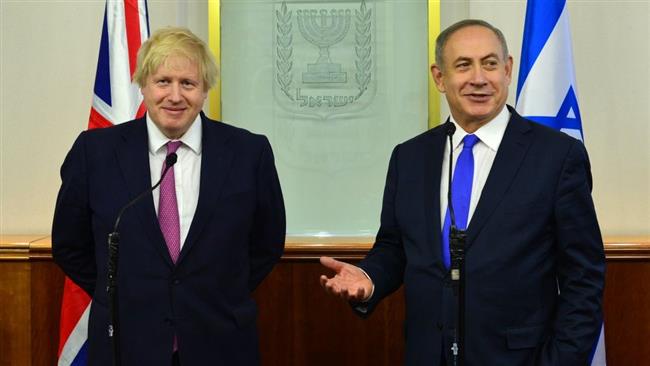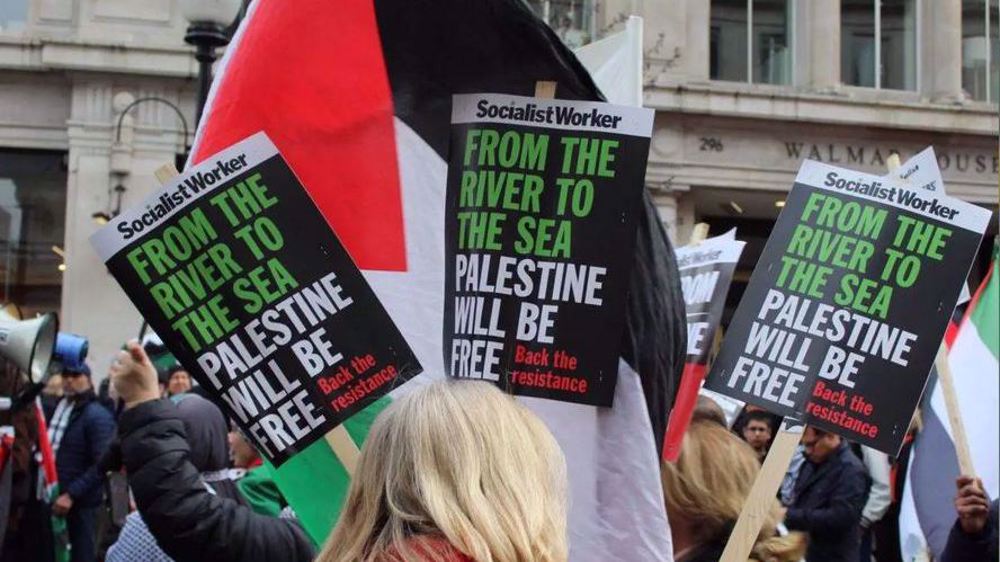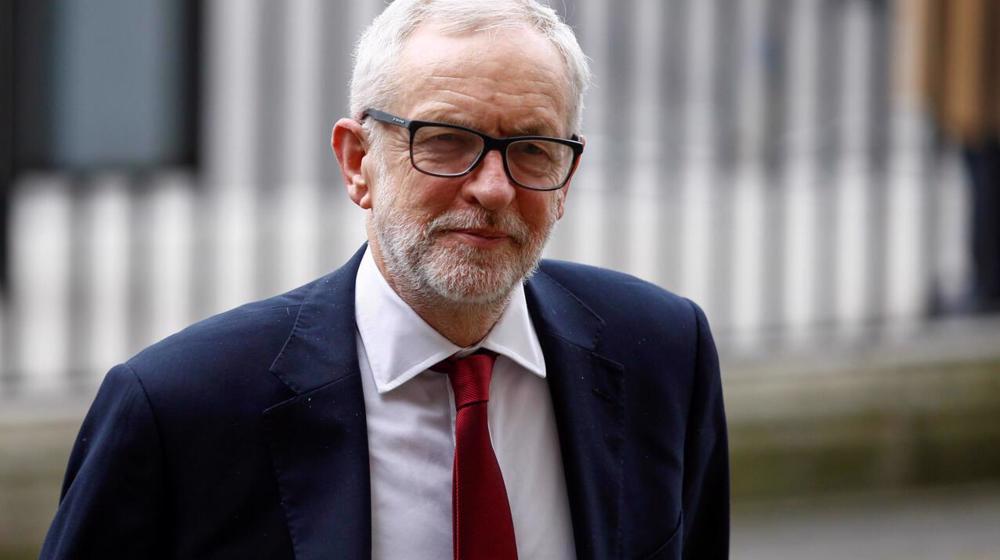UK backs two-state solution, wants Israel ‘in peace with neighbors’
British Foreign Secretary Boris Johnson reiterates the UK support for a two-state solution in the Israeli-Palestinian conflict, asserting that Tel Aviv should make peace with its neighbors.
The top diplomat made the remarks in East Jerusalem al-Quds, alongside Israeli Prime Minister Benjamin Netanyahu on Wednesday.
Johnson further reiterated that London remained a “rock-like” supporter of Tel Aviv under Prime Minister Theresa May just like any other British governments.
"All of our government are, as you know, firm strong supporters, rock-like supporters of Israel and what we want is to see an Israel that is in peace with its neighbors and I should remind you that the policy of our government is for a two state solution, which is what we want to achieve in help to bring in a modest and humble way," he said.
Agreeing but not on ‘all things’

Johnson also commented about London-Tel Aviv trade ties and how it is beneficial to Britain as it prepares to leave the European Union.
"We want to build our own trading partnership with you. We are the biggest European trading partner with Israel I think am right in saying that we have the largest, fastest-growing Aston Martin dealership anywhere in the world here in Israel and we've done some fantastic export deals with you in the last few months but you are also huge contributors to the UK economy, so I am very pleased that one of the things that you agreed with our Prime Minister Theresa May was to set up a working group so that we can go forward together towards a new free trade agreement."
Bibi, for his part, undermined Israel’s expansive policies as a major block to achieve peace in the region, asserting that Tel Aviv and London do not agree “on all things.”
"It is evident that we agree on most things but not on all things and one of the things I think the source when you analyze the problem get to its roots and the reason we haven't had peace for 100 years is not the settlements but persistent refusal to recognize nation state for the Jewish people in any boundary I think if you want to solve the problem got to the core of the problem and that is something I look forward to discuss with you further," stated the Israeli premier.
Israel's settlement expansion was among the reasons behind the collapse of talks with Palestinians in 2014.
The United Nations and most countries regard the settlements to be illegal because the territories were captured by Israel in a war that year and are hence subject to the Geneva Conventions, which forbid construction on occupied lands.
'Gaza has won': Social media users react to ceasefire with mix of relief, joy
Iran seeks South Korea’s assistance for AI, fiber-optic projects
VIDEO | Iran's 'Eqtedar' (Power) maneuver
Israel hits HTS military target in Syria for 1st time since fall of Assad
VIDEO | Press TV's news headlines
Israel has slaughtered 13,000 students in Gaza, West Bank
VIDEO | More Zionist than Zionists: Biden’s legacy to be defined by Gaza genocide
Hamas confirms handing approval of Gaza ceasefire deal to mediators










 This makes it easy to access the Press TV website
This makes it easy to access the Press TV website